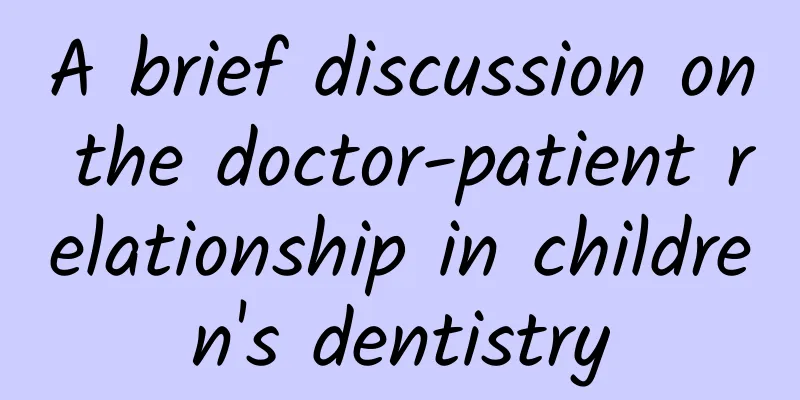As a "foodie", you don't even eat your food properly?

|
Not eating in the morning Eat at noon Then have a big dinner Are you the one I'm talking about? "Man is iron, food is steel." If you don't eat, you will be hungry. However, many "eaters" eat as they please. If they don't have an appetite, they won't eat a single bite. If they are in a good mood, they will overeat. Especially after get off work at night, when they come across something delicious or when they are with friends, they can't stop eating... Today we will study: How full is “70% full”? Why can you only eat until you are 70% full for dinner? How to eat dinner more healthily? 70% full “The feeling of fullness is when our brain receives and feeds back information after we have eaten enough food, which reduces our enthusiasm for eating, thus limiting our food intake and stopping us from continuing to eat. If we rate satiety on a 10-point scale, let's take a look at the "most common" levels: 1. One point full Being in a "dizzy" state of hunger, like the "starting gun" for eating, is a state of "craving for a big meal"; 2. Very full When our body gets enough food, a series of nutrient metabolites produce "stop" signals to suppress appetite, which usually manifests as "not being able to eat anymore"; 3. Eat until you are 70% full This is a state where you feel full but can still eat a few more bites. You can imagine it as the state before you can finish the fruit and dessert after a meal. It can be seen that many people are sensitive to and difficult to overcome the "hunger" that prompts them to eat, while the "fullness" that makes us stop eating is always delayed and enjoyable. Therefore, it is not easy for many people to correctly control "70% fullness" and follow this eating habit for a long time. Eat 70% full for dinner Although "reasonable diet" is to maintain a balance between energy intake and energy expenditure , the physiological characteristics of the human appetite regulation system that tends to eat more have not changed due to changes in labor and survival patterns. The food modern people consume is becoming more and more refined, their energy intake is increasing, and their physical energy expenditure is gradually decreasing. Since the beginning of the last century, several American biologists have conducted experiments on mice and concluded that mice that consume a nutritionally complete food but with 25%-60% fewer calories have a reduced risk of chronic diseases and a longer lifespan. Over the past century, an increasing number of experiments have shown that mice and primates whose calorie diets are restricted not only live longer but also appear healthier. At the same time, many scientists have also used some indirect evidence to show that restricting dietary calories may have positive effects on the human body and that restricting dietary calories is good for health. All of the above further verifies the health proverb "Eat 70% full at each meal, and you will live a healthy life until old age." It can be seen that in today's society where "overweight" and "obesity" have become a threat to human health and longevity, it is particularly necessary to advocate "balance between eating and exercising" and promote the concept of "eating until 70% full". Healthy dinner tips 1. What time do you eat? It is recommended that there be at least 3 hours between dinner and bedtime. Generally speaking, the best time for dinner is between 6 and 8 p.m., and it is best not to eat after 8 p.m. This can give the stomach and intestines enough time to digest the food and reduce the risk of gastrointestinal diseases . 2. What to eat Overall, the food is balanced and varied. Dinner needs to consume about 30% of the daily energy requirement, and various nutrients should be considered comprehensively. In terms of food choices, you can use coarse grains instead of refined grains. Coarse grains are rich in vitamins and dietary fiber, have a strong sense of fullness and are low in energy, which helps control the amount of food you eat at dinner. As for vegetables and fruits, it is recommended to supplement the missing nutrients appropriately based on what you have eaten for breakfast and lunch, and try to maintain a balanced nutrition . 3. How to do it Remember these seven words: less oil, less salt, less alcohol . Try to have a light dinner with less oil and salt to reduce the burden on your stomach and intestines, which also helps control blood pressure and blood lipids. Generally speaking, it is best not to drink alcohol 4 to 6 hours before going to bed , because alcohol can cause the human nervous system to go from excitement to high inhibition, and in severe cases it can even destroy the normal function of the nervous system. 4. How much to eat It is recommended to eat until you are 70% full for dinner. The so-called 70% full means that your stomach does not feel bloated or burdened, your appetite has weakened, and you still want to eat a few more bites out of habit. In summary, eating too much, eating too much meat, eating too late, skipping dinner or skipping staple food are all bad for your health. You must pay attention to a reasonable diet and eat dinner when you are supposed to! |
<<: 20 kinds of bread red and black list: these 4 kinds are really not recommended
>>: Drinking moderately can soften blood vessels? Rumor! These 5 points are really helpful...
Recommend
What foods can cause bloating in babies during breastfeeding?
Breast milk contains immunoglobulin G, which enha...
Anti-inflammatory drugs to reduce breast milk
For mothers who are breastfeeding, it is inevitab...
There is a lump on the areola, the cause should be known
As the pace of life quickens, women's burdens...
Treatment of adult granulosa cell tumor of the ovary
In recent years, the incidence of gynecological d...
What are the signs before a cat dies? How long is the average life span of a cat?
Cats are very cute animals, and many people treat...
How to deal with the leaked gestational sac
In many cases, if a man and a woman do not take e...
What to do if your milk increases after giving birth
Breast engorgement is a common phenomenon for bre...
Influenza B accounts for more than half of cases! What is influenza B? Can you be infected again after having influenza A?
The Spring Festival is approaching Many people ar...
What is considered fatigue for pregnant women?
Pregnant women are not allowed to engage in physi...
What does dark nipple color mean?
For a woman, breasts are very important organs of...
What are the causes of cesarean section scar hyperplasia?
After giving birth by caesarean section, if the w...
Food safety science popularization
Food safety science popularization...
Can I drink cold drinks during pregnancy?
In the summer, the high temperature environment i...
[Medical Q&A] Using crutches is embarrassing, so can patients with femoral head necrosis stop using crutches?
Planner: Chinese Medical Association Reviewer: Wa...
What should girls eat to nourish their bodies when they stay up late
Staying up late is the best way to maintain beaut...









